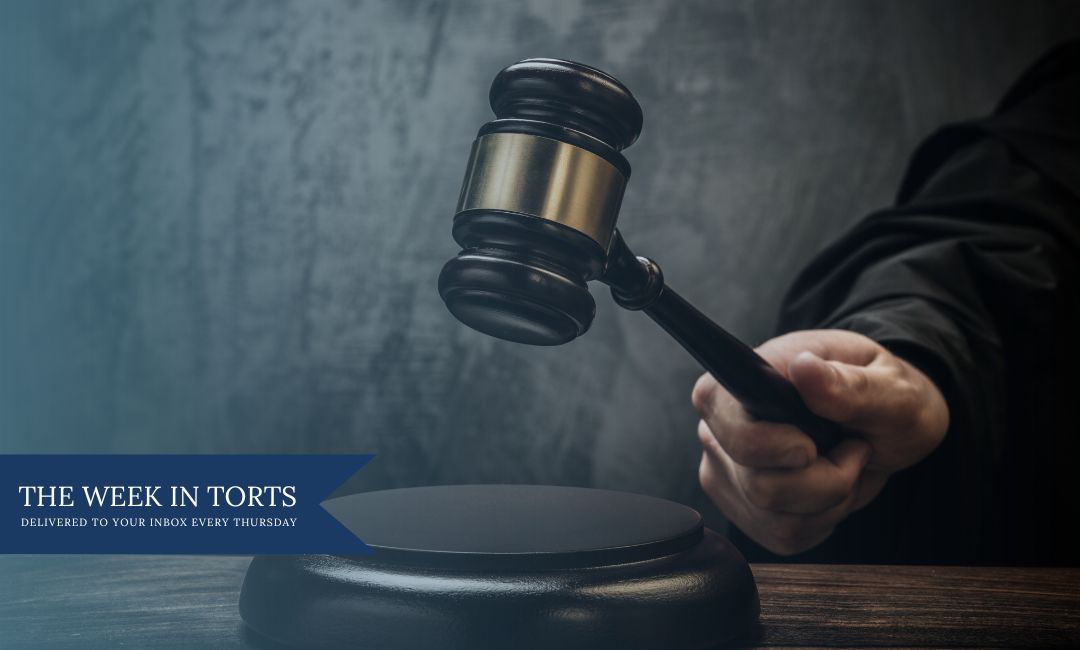The Week In Torts – Cases from September 1, 2023

You’re excused
FLORIDA LAW WEEKLY
VOLUME 48, NUMBER 35
CASES FROM THE WEEK OF SEPTEMBER 1, 2023
ERROR TO DENY MOTION TO VACATE DEFAULT JUDGMENT WHERE DEFENDANT’S UNREFUTED SWORN STATEMENTS ESTABLISHED NO KNOWLEDGE OF LAWSUIT UNTIL AFTER JUDGMENT WAS ENTERED.
Smith v. Lovely Family Trust, 48 Fla. L. Weekly D1712 (Fla. 6th DCA Aug. 25, 2023):
The underlying dispute involved two neighbors with property bordering the same canal. One neighbor began a series of improvements and the other neighbor claimed that the proposed construction violated her common law riparian rights, filing a complaint seeking declaratory and injunctive relief to prevent further construction.
After several failed attempts to serve the defendant personally, the plaintiff resorted to constructive service, requiring the defendant to serve written defenses. When none were filed, the clerk entered a default, followed by a default judgment with a permanent injunction.
Forty-five days later, the defendant filed a motion to vacate asserting excusable neglect. She filed several sworn declarations as factual support for her motion.
After the trial court denied her motion, the defendant appealed. The trial court has discretion to set aside a default judgment upon a demonstration of excusable neglect, a meritorious defense and due diligence in requesting relief. There is also a strong preference for lawsuits to be determined on the merits, meaning that courts should liberally set aside defaults under appropriate circumstances.
The unrefuted sworn statements established that the defendant did not learn of the lawsuit until after the judgment was entered, at which time she sought legal counsel. Her sworn statement showed a meritorious defense (one of which was the potential infirmity with the constructive service). The 18-day delay between receiving notice and obtaining counsel (the time was spent seeking counsel) demonstrated due diligence, and the trial court abused its discretion in refusing to vacate the default judgment.
